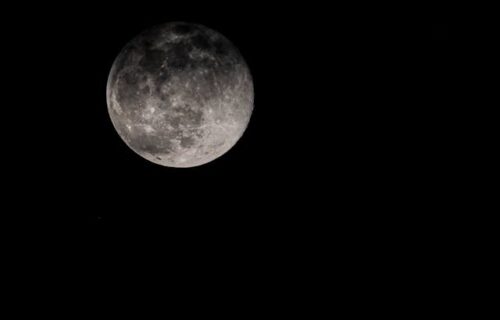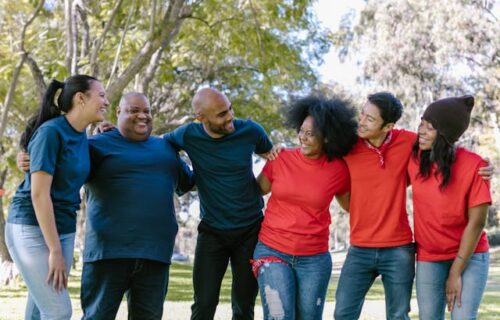
Come up to the lab…
If your mind immediately filled in that blank with “and see what’s on the slab,” you’re proof that campy movies never die. THAT one has been entertaining college students since I was 10 years old.
And what place, you might be thinking, does The Rocky Horror Picture Show have in a blog post on health, especially a post that ought to be focusing on either how to create a healthy Thanksgiving meal or survive the holidays without setting our weight loss goals back considerably?
I’ve weighed in on both those topics already: if you’re looking for a guide to a healthy (and, if you get it today, stress-free) holiday meal, you can get my Thanksgiving 101 e-book; if you want some tips and tricks, check out SparkPeople’s article on surviving Thanksgiving—I disagree with some of the recipe-related tips in there because they prioritize highly processed over whole foods, so focus on the non-food related comments, especially the ones by that Liza Baker woman.
If you attended the most recent WXW event, a panel on women’s health, you were fortunate to hear some more excellent advice on the matter from my amazing panelists: Alison Corey, Gail Solway, Maria Sylvester, and Suman Tewari.
ghost of thanksgiving past
 Growing up, my home was party central for Thanksgiving: my mother is a phenomenal cook, and she and my father would take in a lot of “orphans” from the small college where they taught—foreign students, those who lived too far away to travel home for four short days (when did getting Wednesday off become a thing, anyway?), new faculty who hadn’t yet put down roots in the community, etc.
Growing up, my home was party central for Thanksgiving: my mother is a phenomenal cook, and she and my father would take in a lot of “orphans” from the small college where they taught—foreign students, those who lived too far away to travel home for four short days (when did getting Wednesday off become a thing, anyway?), new faculty who hadn’t yet put down roots in the community, etc.
It wasn’t unusual for the turkey to weigh upward of 25 pounds and the guests to number about as many.
The first year my mother was out of the country for the holiday, I found myself cooking dinner for 19 people….
My husband and I have continued that tradition on a smaller scale, and since he’s Chinese and so are many of his students, our Thanksgiving table has sometimes held an entertaining array of dishes, from the traditional turkey to lo mein, brought by guests who wouldn’t dream of coming empty-handed.
My husband latched onto Thanksgiving as his favorite American holiday early on—being what a friend has jokingly called “a child of Mao,” he not only loves the feast that’s involved but also initially appreciated its non-religious nature.
Imagine his horror when someone gave us a board book about the holiday for our daughter, and it ended with “…and we say, ‘Thank you, God, for….”
He felt seriously betrayed—wasn’t it all about the Pilgrims thanking the Native Americans?!?
I don’t recall how we resolved that discussion, but Thanksgiving remains the high holiday at our house.

thanksgiving laboratory
As I grew to adulthood, I became aware of the fact that the holiday season—which every year seems to last a bit longer and now starts with Halloween rather than Thanksgiving—is a time of deep anxiety for many people.
For those trying to eat healthy, October to January can feel even more like a huge, bottomless, dark pit.
Over the past few years in my work as a health coach, I’ve been connecting the dots, looking at the bonds between our relationship with food and our relationships with other facets of our lives.
If you struggle with the holidays, especially if you feel like Thanksgiving is a battlefield you enter after arming yourself with all those tips and tricks, I encourage you to take a deep breath (actually, a lot of deep breaths) and try to reframe your thinking.
Setting any situation up as a battle immediately presupposes that there is the chance to win or to lose, that someone will come out the winner or the loser, and who needs to add to our frequently negative self-talk?
How would it feel to think of the Thanksgiving meal as a scientific laboratory instead?
I like to encourage my clients to journal about their food—not to painstakingly note what they ate, how much they ate, how many calories, ounces, and grams they ate, but about why they ate and how they felt before and and after they ate.
Looking at our food choices with curiosity rather than judgment can reveal a lot about the areas of our life that are out of whack.
Is that second piece of pie begging to be eaten because you had an extra glass of wine and alcohol is known to decrease our ability to resist overeating?
And did you have that second glass of wine because your mother-in-law criticizes you from the second she walks in until the moment she leaves?
You get the idea.
As I mentioned in the SparkPeople article and in moderating the WXW panel, we have the opportunity to observe ourselves in this way every day—Thanksgiving is like an average day on steroids!
Your modest laboratory suddenly got much more high tech—I invite you to use it fully.
Let me know your thoughts in the comments below—and if you want to journal about your Thanksgiving food experience, you can download my template for one. (Probably better to not take it to the table?)



